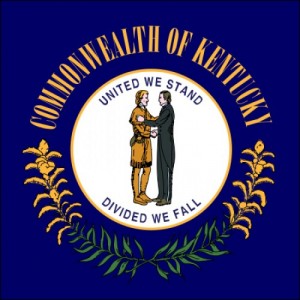Kentuckians can be a fickle bunch when it comes to politics. We are an odd mixture of old school and new school voters. On the surface, we remain old-time Democrats, but we vote more and more for Republican candidates. That may seem odd to the casual observer of Kentucky politics, but in reality it is a very normal occurrence.

Kentuckians are basically conservative. Old-time Democrats are as conservative as modern Republicans. In this state, as with other Southern states, the tendency to vote a conservative ticket is standard. During the heyday of the “Solid South” Democracy, Republicans did not have much of a chance to win local, statewide or national elections.
The reasons for the impotence of the Republican Party in Southern politics stemmed from the Civil War, and the “Great Depression” era. The national Democratic leadership could always count on the South voting the Democrat ticket. However, as early as the 1890s, conservative Democrats began to voice concern that some elements within their party might be drifting toward liberalism.
W.C.P. Breckinridge of Lexington, a long-time congressman during the latter part of the nineteenth century, voiced his concern that Kentucky Democrats had been mesmerized by William Goebel and his Populist agenda. Although a Democrat, Goebel supported much of the Populist Party platform. Some Old-time very conservative Democrats felt betrayed by Goebel’s predilection for Populist reforms that include an eight hour work day, an end to child labor, and strict government regulation or outright control over railroads, telegraphs, and utilities.
Many of Kentucky’s conservative Democrats represented the landed gentry who had no love loss for reformers. In 1895, conservative Democrats helped elect the first Republican governor of the commonwealth, William O. Bradley. Four years later, those Democrats voted for Republican, William S. Taylor rather than for the Democrat nominee, William Goebel or they stayed at home and didn’t vote.
Taylor won, but by a small a majority. Goebel and his supporters decided to challenge the election resulting in one of the worst political debacles in American history. On January 30, 1900, Goebel was shot down as he walked toward the state capitol building. He died from his wounds a few days later, but not before the Democrat controlled legislature declared him governor.
What ensued next nearly ended with a civil war within the state. Eventually, Taylor fled the commonwealth or stand trial as an accomplice in Goebel’s assassination. Democrat, J.C.W. Beckham, Goebel’s lieutenant governor, became Kentucky’s chief executive.
Kentucky’s flirtation with liberal politics faded into history with the exception of the state’s support of Franklin Roosevelt. While some Kentucky Democrats paid lip-service to Roosevelt’s “New Deal,” some of them felt that the president had gone too far in tampering with constitutional authority, and with increasing the powers of the federal government.
The Democrat’s hold on Southern politics has all but been lost. If there is a “Solid South” in politics, it is now more of a Republican voting “Solid South.”
Kentuckian’s penchant for conservatism became evident in the 1950s. The state had voted the Democrat ticket in every presidential election since 1864, with the exception of a spilt electoral vote in 1896, and in 1928, when Kentuckians voted for Republican, Herbert Hoover. In 1952, and again in 1956, the state gave its electoral votes to Republican Dwight D. Eisenhower. In 1960, Kentucky supported Richard M. Nixon. In 1964, the commonwealth returned to the Democratic fold and voted for Lyndon B. Johnson. In 1968, and in 1972, Nixon won Kentucky’s support. In 1976, Southern Democrat, Jimmy Carter received the Kentucky vote. In 1980, and 1984, the Republicans again won Kentucky with Ronald Reagan. The elder George Bush won in 1988, and another Southern Democrat, Bill Clinton triumphed in the commonwealth in 1992 and 1996. George Bush the younger, won Kentucky in 2000, and in 2004. Barack Obama lost Kentucky in 2008 and in 2012. Furthermore, the state’s congressional delegation save one lone Democrat is Republican.
Looking at these statistics we cannot help to wonder where Kentucky will end up politically in the next few years. Will political traditions and loyalties continue in the commonwealth or will political pragmatism align Kentucky with the rest of the South?
The Democrats still have tradition in their favor, and they still retain a numerical majority in voter registration. The question remains whether Kentucky Democrats can retain their political identity and continue to disagree strongly with the national Democrat leadership and policies or will they join the opposition? Only time will tell.
Ron Bryant is a Kentucky historian.








